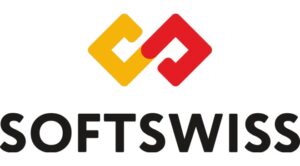Key Moments:
- France’s gambling market achieved €5.7bn ($6.7bn) in gross gaming revenue in H1 2025, increasing 3.5% year-over-year.
- FDJ United recorded a 458% online revenue increase to €700m after acquiring Kindred in October 2024.
- Online sports betting generated 69% of digital gross gaming revenue, while poker revenue fell 4% to €246m.
Market Performance in H1 2025
The French gambling sector has maintained its growth trajectory in the first half of 2025, as the latest report from the Autorité Nationale des Jeux (ANJ) highlights. While total gross gaming revenue reached €5.7bn ($6.7bn), a 3.5% increase from the previous year’s first half, the performance varied across different gambling products.
Online gambling remained a strong contributor, collecting €1.4bn ($1.64bn), which marks a 6% rise year-on-year. This underscores the growing impact and importance of digital channels within the French market.
Sports Betting Drives Market Expansion
Sports betting continued to power the market forward as the leading product category, accounting for 69% of all online gross gaming revenue during the period. The value of stakes placed on sports events increased by 15%, reaching nearly €6bn. Football and tennis were especially popular among players, benefiting from high-profile competitions and extensive coverage.
Retail betting also experienced growth with a 4.4% increase compared to the previous year. The Euromillions lottery played a supportive role for both the lottery and retail sports betting sectors, with elevated jackpots generated by long rollover cycles boosting consumer participation.
Mixed Results for Other Verticals
Despite the overall expansion, not all segments shared in the positive momentum. The online poker market experienced a 4% decline in gross gaming revenue, slipping to €246m, suggesting weakening engagement compared to prior growth years. Horse racing also saw limited advancement, with stakes ticking up by just 1%, reflecting a steady but slowing performance that lags behind gains in sports betting and lotteries.
FDJ United’s Transformation Through Acquisition
The most notable shift came from FDJ United, France’s state-supported operator. Following its acquisition of Kindred in October 2024, FDJ United dramatically strengthened its online gaming presence. The company reported €700m in online revenue in the first half of 2025, representing a striking 458% year-over-year increase.
This acquisition has reshaped the landscape for French gambling, positioning FDJ as a leading player in both the retail and online markets. The consolidation signals broader trends of industry players leveraging deals to grow scale and competitive edge.
| Segment | H1 2025 GGR / Revenue | Change vs H1 2024 |
|---|---|---|
| Total Gambling Market | €5.7bn ($6.7bn) | +3.5% |
| Online Gambling | €1.4bn ($1.64bn) | +6% |
| Sports Betting (Stakes) | €6bn | +15% |
| FDJ United Online Revenue | €700m | +458% |
| Poker GGR | €246m | -4% |
| Horse Racing (Stakes) | N/A | +1% |
Regulatory and Market Challenges
Looking ahead, the ANJ expects growth to continue but cautions that new tax measures introduced during the summer could threaten momentum. The regulator has observed that recent commercial strategies have been effective in attracting new players, which could support ongoing positive results if sustained.
However, the potential impacts of higher taxes raise concerns for market sustainability. ANJ stated the new tax policy’s effects could be “manifold and hard to quantify,” injecting uncertainty for upcoming periods. This highlights a broader issue for the sector: balancing growth and player engagement while contending with increased costs and stricter regulatory requirements.
The complexity surrounding tax changes is mirrored across Europe, suggesting wider regional pressures as operators adapt to an evolving fiscal environment.
Implications for Market Participants
Resilience remains a key theme for France’s gambling operators, although benefits have not been distributed evenly. The rapid expansion of sports betting and FDJ United’s ascent through acquisition demonstrate the role of scale and consolidation in shaping market competition. In contrast, declines in poker and limited growth in horse racing highlight the challenges of sustaining performance across all verticals.
Operators now face the task of developing strategies to capture growth opportunities in high-performing segments such as sports betting and digital channels, while managing the risks of increased taxation and a rapidly shifting competitive landscape, especially with the growing dominance of state-backed firms like FDJ United.
- Author


